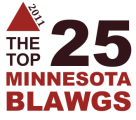Overview: Duties of a Personal Representative in Minnesota
The personal representative (formerly called "executor") is the person that administers the estate when a person dies. The personal representative runs the show during probate. Basically, the personal representative ("PR") winds up the decedent's financial affairs, pays the decedent's debts and taxes, and distributes the balance of the estate to the beneficiaries. Personal Representatives are appointed by the court and are often nominated in a decedent's Will.
Broadly speaking, personal representatives have several main duties:
- Collect/Protect Assets. Once appointed, the personal representative has the power to take possession of the decedent's assets. This does not necessarily mean that the PR must have physical possession of the assets, but the PR must make sure that the assets are secure and protected, i.e. maintaining insurance, changing locks, etc. The PR must also inventory and determine the value of all of the decedent's assets. Sometimes, values are easily obtainable and sometimes, appraisals are required.
- Pay Debts and Expenses. The personal representative must determine all of the valid debts of the decedent's estate and pay these debts. Creditors have four months from the published notice of probate to make a claim on the estate. The PR must also pay all expenses of administration of the estate, including items such as funeral expenses, final medical expenses, taxes, and attorney's fees. Expenses of administration generally have statutory priority over other creditor claims.
- Inventory. Within six months after appointment as PR or nine months after decedent's death, the PR prepares the Inventory and serves it on all interested parties. The inventory basically lists all of the decedent's assets. Next to each asset is the fair market value at the date of death and also any encumbrance that may exist with respect to an item. Real and personal property are included as well as all debts of the decedent.
- Final Account. Personal representatives should keep precise records of every transaction taken with respect to the decedent's estate. Depending on how the estate is closing, the PR may be required to file a Final Account with the Court. The Final Account is basically a complete record of all assets, receipts, and disbursements made during the estate administration. It's like a balance sheet for the estate. Even if not required, it is generally a good idea to prepare and file a Final Account in order to protect the PR from any contested issues or liability down the road.
- Distribution. Lastly, the personal representative is responsible for distributing the assets to the beneficiaries. The PR looks to statutes and estate planning documents such as Wills for guidance as to distribution. Special considerations need to be taken into account if there are insufficient assets left in the estate to distribute according to the wishes of the decedent.
Personal Representatives have a duty of loyalty to the estate of the decedent and must act in the estate's best interests. PR's must avoid conflicts of interests and self-dealing. They must also maintain confidentiality regarding the affairs of the estate. Generally, personal representatives are not individually liable for their actions as PR, as long as the PR acts in good faith.
Personal Representatives are generally entitled to reimbursement from the estate of money they expend in administering the estate, i.e. for court costs and attorney fees. PR's are also entitled to a reasonable fee for their services. This fee is often in the range of $25.00 to $50.00 per hour, depending on the complexity of the estate and the background/experience of the PR. Professional PR's, such as bank or corporate PR's usually charge more. Note that these fees are taxable as income to the PR.
Unless otherwise qualified, it is generally a good idea for a personal representative to hire an attorney to assist in the administration of the estate. Probate is a time-sensitive process that requires close supervision and attention to detail.
